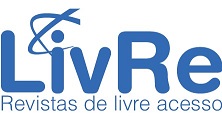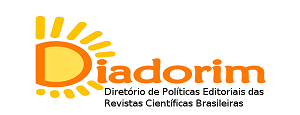PROMOTING ENVIRONMENTAL AWARENESS
INTEGRATING ENVIRONMENTAL EDUCATION INTO GEOGRAPHY TEACHING
DOI:
https://doi.org/10.70860/rtg.v13i31.19175Keywords:
Environment, Learning, Environmental educationAbstract
Environmental education (EE) has been a frequent topic in educational debates, highlighting its relevance in students' development regarding environmental issues. In the Geography discipline, approaching this topic can be integrated jointly, exploring the interactions between society and nature and fostering critical thinking among students. This work aims to demonstrate how Geography teaching can enhance environmental education, considering that most environmental challenges emerge from the relationship between society and nature. To support this approach, a bibliographic survey was conducted, encompassing articles, books, theses, dissertations, and conference proceedings discussing the importance of environmental education in Geography. In summary, it can be inferred that teaching Geography and working with environmental education are stimulating and enriching challenges, albeit presenting obstacles to be overcome in schools. When referring to environmental themes, we find them inseparable from Geography. Therefore, by prioritizing environmental awareness in the classroom, teachers can effectively instill in students an awareness focused on the conservation and protection of our planet's environment.
References
APRIGIO, S. S. DE O; CANTANHEDE, L. B; CANTANHEDE, S.C.S; JUNIOR, O. C.T; VELOSO, C. Abordagem ambiental no âmbito escolar: percepções dos alunos sobre as práticas socioambientais durante o ensino médio. Pesquisa em Foco, v. 24, n. 1, 2019.DOI:https://doi.org/10.34024/revbea.2021.v16.11706.Disponível:https://periodicos.unifesp.br/index.php/revbea/article/view/11706. Acesso: 20 nov.2023.
BARBOSA, L. C. Políticas públicas de educação ambiental numa sociedade de risco: tendências e desafios no Brasil. IV Encontro Nacional da Anppas, v. 4, n. 5, p. 1-21, 2008. Disponível em: http://portal.mec.gov.br/dmdocuments/publicacao11.pdf. Acesso em: 02 nov.2023.
BRASIL. Secretaria de Educação Fundamental. Parâmetros curriculares nacionais: introdução aos parâmetros curriculares nacionais. Brasília: MEC/SEF, 1997. 126p. Disponívél em:http://portal.mec.gov.br/seb/arquivos/pdf/livro01.pdf. Acesso em: 13 ago.2023.
BRASIL. Ministério da Educação. Base nacional comum curricular. Brasília:MEC/SEB, 2017. Disponível em: http://basenacionalcomum.mec.gov.br/. Acesso em: 20 set.2023.
BRASIL. Lei número 9.795 de 27 de abril de 1999. Política Nacional de Educação Ambiental, Diário Oficial da União, Brasília, 1999. Disponível em: https://www.planalto.gov.br/ccivil_03/leis/l9795.htm. Acesso em: 19 jun.2023.
BRASIL. Resolução Nº 2, de 15 de junho de 2012 – Estabelece as Diretrizes Curriculares Nacionais para a Educação Ambiental.Disponível em: http://portal.mec.gov.br/dmdocuments/rcp00212.pdf. Acesso em: 18 out. 2023.
BRASIL. Lei nº 9.394, de 20 de dezembro de 1996 – Estabelece as diretrizes e basesdaeducaçãonacional.http://www.planalto.gov.br/ccivil_03/leis/l9394.htm. Acesso em: 25 de jun.2023.
BRASIL. LEI Nº 12.608, de Abrill de 2012. Política Nacional de Proteção e Defesa CivilPNPDEC.Brasília,DF,abr2012.Disponívelem:http://www.planalto.gov.br/ccivil03/_Ato2011-2014/2012/Lei/L12608.htm. Acesso em: 11 set. 2023.
BERNARDES, M.B.J; NEHME, V.G.F. A Pesquisa-Ação: Mediadora de Ações Em Educação Ambiental. Espaço em Revista, v. 19, n. 2, p.5667,2017.DOI:https://doi.org/10.5216/er.v19i2.51870.Disponívelem:https://periodicos.ufcat.edu.br/espaco/article/view/51870. Acesso em: 23 ago.2023.
CARVALHO, I, C, M. Educação ambiental: a formação do sujeito ecológico. Cortez Editora, 2017.
FERNANDES, P. R.; ROCHA, P. C. Coleta Seletiva e Escolas Municipais: Uma Parceria Possível Através da Educação Ambiental. Estudo de caso: Escolas municipais da Estância Turística de Olímpia. 8º Fórum Internacional de Resíduos Sólidos, Curitiba. Anais.Curitiba, PR, 2017. Disponivél em: https://www.revistaea.org/artigo.php?idartigo=3055. Acesso em: 12 jun.2023.
FREIRE, Paulo. Pedagogia da autonomia. Rio de Janeiro: Paz e Terra, v. 19897, 2022.
LUCKESI, C. C. Filosofia da Educação. 2.ed. São Paulo: Ed. Cortez, 2011.
MARTINS, K; FROM, D. A. A importância da educação a distância na sociedade atual. 2016.
PROFICE, C. C. Educação ambiental: dilemas e desafios no cenário acadêmico brasileiro. REDE – Revista Eletrônica do PRODEMA, Fortaleza, Brasil, v. 10, n. 1, p.p. 22- 37, jan./jun. 2016.
REIGOTA, M. Meio ambiente e representação social. São Paulo: Cortez, 1995.
REIS, F. H. C. S; MOURA, A. R. L; CABRAL, W. R; MIRANDA, R. D. C. M. A Educação Ambiental no contexto escolar brasileiro. Revista Brasileira de Educação Ambiental(RevBEA),v.16,n.6,p.69-82, 2021. DOI:https://doi.org/10.34024/revbea.2021.v16.11706.Disponívelem: https://periodicos.unifesp.br/index.php/revbea/article/view/11706. Acesso em: 02 Nov.2023. DOI: https://doi.org/10.34024/revbea.2021.v16.11706
SILVEIRA, D.P; LORENZETTI, L; SCHEFFER, D.C.D; GOLLE, D.P. Dialogues on environmental education with schools: a focus on critical environmental education título. Research, Society and Development, [S. l.], v. 10, n. 3, p. e37110313558, 2021. DOI: 10.33448/rsd-v10i3.13558.Disponível em: https://rsdjournal.org/index.php/rsd/article/view/13558. Acesso em: 10 Jul.2023. DOI: https://doi.org/10.33448/rsd-v10i3.13558
SILVA, A.B; RAMALHO, M. F. J. L. Realidade e desafios da Educação Ambiental: o ensino de Geografia a favor de uma educação ambiental contínua. Educação em Foco, v. 24, n. 44, p. 283-307, 2021. DOI: https://doi.org/10.36704/eef.v24i44.5643. Acesso em 29 out.2023. DOI: https://doi.org/10.36704/eef.v24i44.5643
SILVA, F. S, TERÁN A.F. Práticas pedagógicas na educação ambiental com estudantes do ensino fundamental. Experiências em Ensino de Ciências, v. 13, n. 5, p. 339-351, 2018.
SANTOS, V. M. N. Educar no ambiente: construção do olhar geográfico e cidadania. São Paulo: Annablume, 2011.
Downloads
Published
How to Cite
Issue
Section
License
Copyright (c) 2024 Tocantinense Journal of Geography

This work is licensed under a Creative Commons Attribution-NonCommercial-NoDerivatives 4.0 International License.
Revista Tocantinense de Geografia does not remunerate any author for the publication of their texts. The contents of the texts published in this journal are the responsibility of the authors.








.png)












